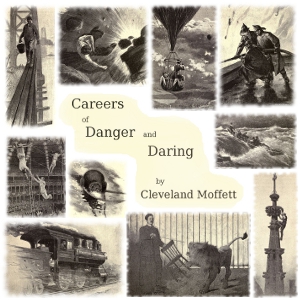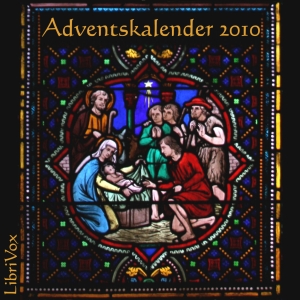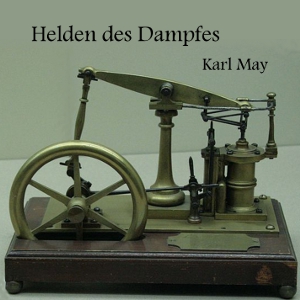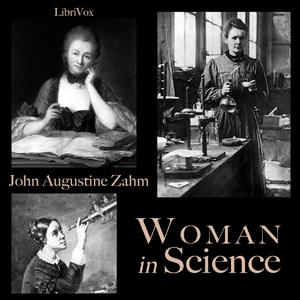Warner's thoughtful and often humorous memoir of his life as a young farm-boy in Charlemont, Massachusetts. (Introduction by Mark Penfold)
19 episodes
A Handbook for Women During Pregnancy. This book, written for women who have no special knowledge of medicine, aims to answer the questions which occur to them in the course of pregnancy. Directions for safeguarding their health have been given in detail, and emphasis has been placed upon such measures as may serve to prevent serious complications.
(Introduction by J. Morris Slemons)
17 episodes

These articles, pamphlets, and stories relating to the Girls Scouts of America touch on the history, activities, ideals, and traditions of this remarkable girls' organization. Though some of the articles appear redundant, they were selected to represent a contemporary view spanning five years of the organization's early popularity (1917-1921). Of significance are the detailed descriptions of Girl Scout involvement in war work during what is now known as World War I. Girl Scouts were prepared through their training for merit badges to be independent, resourceful, reliable, and helpful. They were able to make their own clothes, grow and cook their own food, care for the sick, and start a small business--skills that prepared young women for their future roles as homemakers, workers, and citizens.A version of the story "The Brownies" is still part of the Brownie Girl Scout literature into the 21st century. The Encyclopaedia and Dictionary of Education edited by Foster Watson (1921) provides the following explanation under the entry for "Girl Guides": "The 'Brownies' are children under 11, who take two promises only, and whose motto is 'Lend a hand.' The scheme is based on Mrs. Ewing's story of the 'Brownies.'"Though not an official Girl Scout story, The Tadger Tales have become a tradition with many Girl Scout summer camp programs. The stories are read aloud and acted out with improvisation and much silliness. The event concludes with a secret Tadger club ritual involving a safety pin, some tape, and a bit of string.
12 episodes
Colonel William Crosbie Hunter was a businessman and self-help writer who was moderately popular in the early 20th century. His books set forth his personal philosophy on health, happiness, human relations, and success in the business world. Pep, billed as "A book of how's not why's for physical and mental efficiency," was published in 1914 and went through several editions. (Introduction by Pleonic)
12 episodes
The Lives of the Queens of England is a multi-volumed work attributed to Agnes Strickland, though it was mostly researched and written by her sister Elisabeth. These volumes give biographies of the queens of England from the Norman Conquest in 1066. Although by today's standards, it is not seen as a very scholarly work, the Stricklands used many sources that had not been used before.Volume one includes the biographies of Matilda of Flanders, Matilda of Scotland, Adelicia of Louvaine, Matilda of Boulogne and Eleanora of Aquitaine.(Introduction by Ann Boulais)
18 episodes

By Zorra, in the following sketches, is meant a little district in Oxford county, Ontario, some ten miles square, composed of part of East and part of West Zorra, and containing a population of about fourteen hundred. It was settled about the year 1830, chiefly by Highlanders from Sutherlandshire, Scotland.
Within the last forty years there have gone from this district over one hundred young men who have made their mark in the world. With most of these it has been the writer's good fortune to be personally and intimately acquainted; and companionship with some of them has been to him a pleasure and a benefit.
It is not intended to include all these in the following sketches; this were impracticable, but it is believed that a brief, unvarnished account of the career of some of them may be an inspiration, not only to the young men of Zorra to-day, but to men everywhere struggling against difficulties, and earnestly engaged in the conflict of life. Such sketches will also be to many a pleasant souvenir of early days, when
"Hearts were light as ony feather,
Free frae sorrow, care and strife." (summary by W.A. MacKay (1900))
25 episodes
A look at some of the famous women in European history. Includes biographies on Cleopatra; Isabella of Castile; Joan of Arc; Maria Theresa; Josephine; Elizabeth of England; Mary of Scotland; Catherine of Russia; Marie Antoinette; and Madame Roland.
Mr. Jenkins, whose name remains on the title-page of this volume, was prevented from finishing the work for a long time by sickness, and finally by death. The first chapter is from his pen, and the rest has been written according to his instructions by one whom he selected, and who has had access to works rare in this country, such as Monstrelet's Chronicles, Tooke's Life of Catherine II., Madame Roland's Appeal, etc. (Summary by TriciaG & Publisher's Preface)
41 episodes
Many books describe the role of men during American history. However, at the same time, women did much: comforted, fought, helped, raised children, and much more. This book is full of mini-biographies of women in many places, and many ages- each chapter telling about a different subject. (Summary by Stav Nisser)
22 episodes
A short look at building a rock garden, right from the rocks themselves and how to arrange them, to choosing and placing the plants, touching wall and bog gardens, too. In this little monograph, the author is trying to draw the eyes of U.S. gardeners in to the intimate beauty of this neglected hobby.
(The original work has a number of attractive and useful photographs and drawings.)
1 episodes
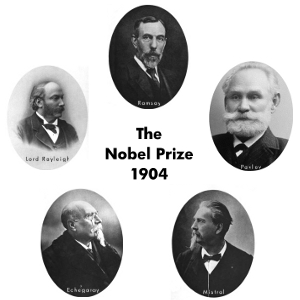
The Nobel Prizes are international awards bestowed once a year by Scandinavian committees for cultural and scientific advances. They were established in 1895 by the Swedish chemist Alfred Nobel, the inventor of dynamite. The prizes in Physics, Chemistry, Physiology or Medicine, Literature, and Peace were first awarded in 1901.
The Laureats of 1904 were:
in Physics: Lord Rayleigh (John William Strutt, 1842 - 1919), "for his investigations of the densities of the most important gases and for his discovery of argon in connection with these studies";
in Chemistry: Sir William Ramsay (1852 - 1916), "for his discovery of the inert gaseous elements in air, and his determination of their place in the periodic system";
in Physiology or Medicine: Ivan Petrovich Pawlow (1849 - 1936), "in recognition of his work on the physiology of digestion, through which knowledge on vital aspects of the subject has been transformed and enlarged";
in Literature: Frédéric Mistral (one half, 1830 - 1914), "in recognition of the fresh originality and true inspiration of his poetic production, which faithfully reflects the natural scenery and native spirit of his people, and, in addition, his significant work as a Provençal philologist",
and José Echegaray y Eizaguirre (one half, 1832 - 1916), "in recognition of the numerous and brilliant compositions which, in an individual and original manner, have revived the great traditions of the Spanish drama";
in Peace: Institut de droit international (Institute of International Law), "for its efforts as an unofficial body to formulate the general principles of the science of international law.".
This multilingual collection contains the presentation speeches for the Laureats, their biographies, as well as the famous "Nobel lectures" for the three scientific awards. The presentation speeches, originally given in Swedish, were translated by the Nobel Foundation into the mother tongue of the Laureats. (Summary by Availle and Wikipedia)
15 episodes
The world, if we choose to see it so, is a complicated picture of people dressing and undressing. The history of the world is composed of the chat of a little band of tailors seated cross-legged on their boards; they gossip across the centuries, feeling, as they should, very busy and important. As you will see, I have devoted myself entirely to civil costume—that is, the clothes a man or a woman would wear from choice, and not by reason of an appointment to some ecclesiastical post, or to a military calling, or to the Bar, or the Bench. Such clothes are but symbols of their trades and professions, and have been dealt with by persons who specialize in those professions. (Summary excerpted from Introduction.)
40 episodes
Marie Curie, born in Warsaw in 1867, was a Polish-French physicist and chemist famous for her work on radioactivity. She was a pioneer in the field of radioactivity and the first person honored with two Nobel Prizes - in physics (1903) and chemistry (1911). The risks of working with strongly radioactive materials were not known at that time, and she eventually died in 1934 from an illness likely caused by radiation poisoning.
Radioactive Substances is the thesis of Marie Curie, presented to the Faculté de Sciences de Paris in 1903, and subsequently published in "Chemical News" vol 88, 1903. Marie Curie gives a detailed description of her research on radioactive substances carried out at the Sorbonne. She details how she obtained the two new elements radium and polonium from pitchblende, explains her numerous experiments and presents measurements of all kinds. (Summary by Availle)
12 episodes
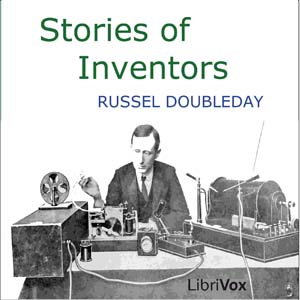
Doubleday chronicles the history of everyday inventions that form the foundation of technology now common through the world. While some of the inventions are no longer used, each example shows how inventors contributed to technology through perseverance, inspiration and clever observations. In each chapter, he gives a clear, understandable background of the technology.Many of the now outdated inventions may have inspired later inventions by meeting emerging demands. For example, Edison's filament bulb is now being phased out by more efficient CFL's, but Edison's contribution to indoor lighting likewise removed the need for inefficient gas-burning lamps. While trains for carrying mail and freight have largely been replaced by more nimble semi trailers, one example shows how technology can translate from ground to air travel. Trains with curved pipes that scooped water to refill reservoirs could be controlled from the train engine-cab without stopping, and mirrors the in-flight refueling systems that keep aircraft flying without the need to land. Although computers have replaced typewriters, word processing programs and web browsers justify text with similar algorithms. (Summary By LivelyHive)
13 episodes
In this volume of adventure the author depicts the lives of certain humble modern heroes whose unconscious courage ordinarily goes unnoticed. Mr. Moffett
has chosen unusual and picturesque careers, and has offered dramatic scenes from the lives of the steeple climber, the diver, the balloonist,the pilot, the bridge builder, the fireman, the aerial acrobat, the wild animal trainer, the dynamite worker and lastly the locomotive driver. (Summary by annise)And it has great pictures - ever wondered what the top of a steeple really looked like? Some listeners may find the "Wild Animal Tamer" stories distressing - I did. I would suggest you just don't download that section - the rest is well worth listening to.
40 episodes
Deeper questions of life and death, and of God’s relationship to man, are explored in this collection of “dreams” by a noted English novelist and literary critic. A man takes an uncertain step into the next world as his life ends – Defendants at the Last Judgment hurl their own accusations at the Judge – An angel arrives on Christmas Eve to guide one soul through a night of despair and doubt – Flowers in a garden contemplate their own mortality – What would it mean if the world renounced Christ, or God took Christ away from the world? – And in a world of the future, pleasure and luxury are pursued … and children are nowhere to be found. (Introduction by D. Leeson)
11 episodes
Originally published in 1825 under the title: Sketches of New Brunswick : containing an account of the first settlement of the province, with a brief description of the country, climate, productions, inhabitants, government, rivers, towns, settlements, public institutions, trade, revenue, population, &c., by an inhabitant of the province. The value of this history is in the fact that it was written when the Province was still in its infancy. Although there had been a few small settlements established in New Brunswick prior to 1783, the main influx of settlers were Loyalists who chose to remove to the area from the United States following the American Revolution. (Summary from text with additions by Roger Melin)
20 episodes
The first of six volumes, this volume covers in extensive detail the topics of "The Evolution of Modesty", "The Phenomena of Sexual Periodicity", and "Auto-Eroticism". Written as an anthropological and psychological study from the point of view of Havelock, the famous British sexologist of the late 19th century, who was also a physician and social reformer. (Summary by Tim Ferreira)
31 episodes

Slosson reviews the transformation of alchemistry from an obscure and imprecise practice to the science of chemistry. Along the way, he explains how the modern industrial world now relies on fertilizers, explosives, textile materials, polymers and metals.By exploring the properties of a once undervalued element, the high strength of vanadium steel made the Ford car possible. Another element, cerium, appears in butane lighters and was once seen as a threat to the match industry in France.In his chapter on oils, Slosson reviews the development of hydrogenated oils, especially during WWII, in the search for a way to reuse otherwise discarded components of corn and cottonseed. Through the revolutionary reaction of hydrogenation, waste materials became a stable product that wouldn't spoil when packaged or carried without refrigeration. Once thought of as a miracle, shoppers were once willing to pay more for fully hydrogenated oils than their natural, unsaturated forms. Only in recent years has evidence of health risks checked their popularity and given them the image of cheap, unhealthy fillers. (Summary by LivelyHive)
17 episodes
In this book, Schweitzer traces the historical progress of 'Historical Jesus' research, from Hermann Reimarus in the mid 18th century, to William Wrede at the turn of the 20th. Schweitzer showed how Jesus' image had changed with the times and with the personal proclivities of the various authors. He concluded with his own synopsis and interpretation of what had been learned over the course of the previous century. He took the position that the life of Jesus must be interpreted in the light of Jesus' own convictions, which he characterized as those of late Jewish eschatology. (Introduction from Wikipedia, modified by JoeD)This project was proof listened by Tim Ferreira, Goergedave, Betty M., Phil Chenevert, and Guero.
46 episodes

After the American Civil War, John R. Lynch, who had been a slave in Mississippi, began his political career in 1869 by first becoming Justice of the Peace, and then Mississippi State Representative. He was only 26 when he was elected to the US Congress in 1873. There, he continued to be an activist, introducing many bills and arguing on their behalf. Perhaps his greatest effort was in the long debate supporting the Civil Rights Act of 1875 to ban discrimination in public accommodations.
In 1884 Lynch was the first African American nominated after a moving speech by Theodore Roosevelt to the position of Temporary Chairman of the Republican National Convention in Chicago, Illinois. During the Spanish-American War of 1898, he was appointed Treasury Auditor and then Paymaster under the Republicans. In 1901, he began serving with the Regular Army with tours of duty in the United States, Cuba, and the Philippines.
Lynch retired from the Army in 1911, then married Cora Williams. They moved to Chicago, where he practiced law. He also became involved in real estate. After his death in Chicago 1939 at the age of 92, he was buried with military honors in Arlington National Cemetery. He was entitled to this as a Congressman and veteran.
After the turn of the centutry, Lynch wrote a book, The Facts of Reconstruction, and several articles criticizing the then-dominant Dunning School historiography. Dunning and followers had emphasized the views of former slave owners and routinely downplayed any positive contributions of African Americans during Reconstruction, as well as suggesting they could not manage any political power. Lynch argued that blacks had made substantial contributions during the period. Since he participated directly in Reconstruction-era governments, Lynch's book is considered a primary source in study of the period. (Introduction by Guero and Wikipedia.)
29 episodes
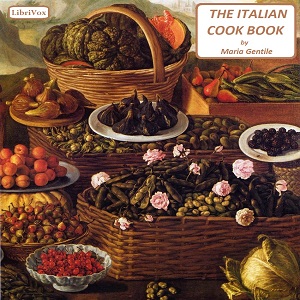
One of the beneficial results of the Great War has been the teaching of thrift to the American housewife. For patriotic reasons and for reasons of economy, more attention has been bestowed upon the preparing and cooking of food that is to be at once palatable, nourishing and economical.In the Italian cuisine we find in the highest degree these three qualities. That it is palatable, all those who have partaken of food in an Italian trattoria or at the home of an Italian family can testify, that it is healthy the splendid manhood and womanhood of Italy is a proof more than sufficient. And who could deny, knowing the thriftiness of the Italian race, that it is economical?It has therefore been thought that a book of practical recipes of the Italian cuisine could be offered to the American public with hope of success. It is not a pretentious book, and the recipes have been made as clear and simple as possible. Some of the dishes described are not peculiar to Italy. All, however, are representative of the Cucina Casalinga of the peninsular Kingdom, which is not the least product of a lovable and simple people, among whom the art of living well and getting the most out of life at a moderate expense has been attained to a very high degree. (Preface of the book)
17 episodes
American Cookery, by Amelia Simmons, was the first known cookbook written by an American, published in 1796. Until this time, the cookbooks printed and used in what became the United States were British cookbooks, so the importance of this book is obvious to American culinary history, and more generally, to the history of America. The full title of this book was: American Cookery, or the art of dressing viands, fish, poultry, and vegetables, and the best modes of making pastes, puffs, pies, tarts, puddings, custards, and preserves, and all kinds of cakes, from the imperial plum to plain cake: Adapted to this country, and all grades of life. (Description from Wikipedia)
6 episodes
Volume IV of a series containing anecdotes and stories, some well-known, others less so, of particular countries. This fourth volume covers the history of England from its conversion to Christianity up to the reign of Queen Victoria, describing history for children and young adults in an exciting and novel manner. (Introduction by Kalynda)
28 episodes

“Who can help laughing when an ordinary journalist seriously proposes to limit the subject-matter at the disposal of the artist?”“We are dominated by journalism.... Journalism governs for ever and ever.”[/i]One of the nastiest of the British tabloids was founded a year too late to join in the moral panic generated to accompany Oscar Wilde’s court appearances in 1895. Yet there was no shortage of hypocritical journalists posing as moral arbiters to the nation, then as now.This compendium work - skilfully assembled by the editor, Stuart Mason - ends with transcript of Wilde’s first appearance in the Old Bailey, when he was cross-examined on the alleged immorality of his novel The Picture of Dorian Gray. The disastrous outcome of these trials provides an ironic conclusion to the earlier knockabout exchanges between Oscar and his reviewers. In these he is at his flamboyant best, revelling in the publicity he pretends to disdain. His brave performances in the dock did nothing, however, to save him from hard labour, the treadmill and complete physical and moral breakdown which the law found it necessary to inflict on him.In contrast to the hacks and lawyers, two refreshingly open-minded Americans write perceptively about the novel, as does Walter Pater, the grand old man of Aestheticism.This solo Librivox project complements a new dramatised reading of The Picture of Dorian Gray, currently in preparation, featuring the present reader as Narrator. (Introduction by Martin Geeson)
18 episodes
A collection of readings in the readers language of choice
7 episodes
Essentially the sequel to The Life of St. Teresa, Teresa recounts the foundations of the Discalced Carmelite monasteries in Spain, both for men and women. This book tells of all the triumphs and troubles, and about the many people who helped her.(Introduction by Ann Boulais)
31 episodes
Florence Augusta Merriam Bailey was an American ornithologist and nature writer. She started observing bird behavior at a time when most bird study was based on collections and skins. By 1885, she began to write articles focusing on protecting birds. Her introduction of a birdwatching field guide, aimed at living birds, is considered the first in the tradition of modern bird guides. She wrote the first of these at the age of 26, initially as a series of notes in the Audubon Magazine and later as books. In "A-Birding on a Bronco," she writes an engaging memoir about her several trips to study birds on a ranch in California in the late 1800's.
19 episodes
In seiner 1880 erschienenen Anleitung zur Zimmer-Gärtnerei gibt Max Alfred Jubisch leicht verständliche Ratschläge zur richtigen Aufstellung, Pflege und Vermehrung von Zimmerpflanzen. Dabei geht er auch auf die zu dieser Zeit erst in Mode gekommenen Terrarien und Aquarien ein.
Wer nicht sofort zur Bekämpfung von Pflanzenkrankheiten die Chemiekeule schwingen will, wird hier sicherlich einige gute Tipps finden. Und wer einfach nur wissen will, wie es anno 1880 in Deutschen (Blumen)-Zimmern ausgesehen haben mag, wird hier sicherlich auch einen kleinen Einblick bekommen.
Auf den fünften Abschnitt der Druckausgabe wurde in diesem Hörbuch verzichtet, da es sich im Wesentlichen nur um eine Aufzählung lateinischer Blumennamen handelt. (Zusammenfassung von Wassermann)
9 episodes
Diese Sammlung ist ein Adventskalender und enthält ein Türchen für jeden Tag vom 1. bis zum 24. Dezember.
24 episodes
HE WHO SPOKE and wrote this message will be greatly disappointed if it does not lead many to the Lord Jesus. It is sent forth in childlike dependence upon the power of God the Holy Ghost, to use it in the conversion of millions, if so He pleases. No doubt many poor men and women will take up this little volume, and the Lord will visit them with grace. To answer this end, the very plainest language has been chosen, and many homely expressions have been used. But if those of wealth and rank should glance at this book, the Holy Ghost can impress them also; since that which can be understood by the unlettered is none the less attractive to the instructed. Oh that some might read it who will become great winners of souls!
Who knows how many will find their way to peace by what they read here? A more important question to you, dear reader, is this – Will you be one of them? (From All of Grace)
11 episodes

Institutes of the Christian Religion is John Calvin's seminal work on Protestant systematic theology. Highly influential in the Western world and still widely read by theological students today, it was published in Latin in 1536 and in his native French in 1541, with the definitive editions appearing in 1559 (Latin) and in 1560 (French).
The book was written as an introductory textbook on the Protestant faith for those with some learning already and covered a broad range of theological topics from the doctrines of church and sacraments to justification by faith alone and Christian liberty, and it vigorously attacked the teachings of those Calvin considered unorthodox, particularly Roman Catholicism to which Calvin says he had been "strongly devoted" before his conversion to Protestantism. The over-arching theme of the book – and Calvin's greatest theological legacy – is the idea of God's total sovereignty, particularly in salvation and election.
The Institutes are a primary reference for the system of doctrine adopted by the Reformed churches, usually called Calvinism.
Book Four of the Institutes discusses "the Church and the Communion of Saints, or of the external means or helps by which God invites us to fellowship with Christ, and keeps us in it." This includes Church government, with scathing denunciations of the Papacy and Catholic Church. (Summary from Wikipedia & TriciaG)
46 episodes
Der dreiteilige Aufsatz über Die Helden des Dampfes wurde mit hoher Wahrscheinlichkeit von Karl May verfaßt und veröffentlicht in Schacht und Hütte. Blätter zur Unterhaltung und Belehrung für Berg- Hütten- und Maschinenarbeiter. (Dresden 1875). Eine Zeitschrift, die 1875/76 etwa ein Jahr lang von Karl May als Redakteur konzipiert und betreut wurde und im Verlag H. G. Münchmeyer erschien.
Der Aufsatz erschien im 1. Jahrgang aufgeteilt auf die Nummern 2, 4 und 7. Bereits in der Nummer 1 erschien zudem ein Aufsatz mit dem Titel Mit Dampf um den Erdball, welcher hier als Anhang mit aufgenommen wurde. (Zusammenfassung von Karl-May-Wiki und Wassermann)
4 episodes
A sweet, old fashioned Christmas romance set in an old New England meeting house. (Summary by Maria Therese)
9 episodes
Epistulae morales ad Lucilium sind eine Sammlung von 124 Briefen. In den Briefen erteilt Seneca Ratschläge, wie Lucilius, von dem lange Zeit vermutet wurde, er wäre eine fiktive Gestalt, zu einem besseren Stoiker werden könnte. Sicher ist, dass Seneca die Briefe als Mittel benutzte, um verschiedene Aspekte seiner Philosophie darzustellen. Zugleich eröffnen die Texte auch einen Einblick in das Alltagsleben des antiken Rom.
(Zusammenfassung von Wikipedia) Die Briefe 1 - 93 übersetzte August Pauly, die Briefe 94 -124 Adolf Haakh. Briefe 66 - 79: Text (1) & (5) Briefe 80 - 93: Text (2) & (5) Briefe 94 - 107: Text (3) & (5) Briefe 108 - 124: Text (4) & (5)Briefe (Epistulae morales ad Lucilium) 1 (1-65)
59 episodes

“(T)he past is what man should not have been. The present is what man ought not to be. The future is what artists are.”
Published originally as “The Soul of Man Under Socialism,” this is not so much a work of sober political analysis; rather it can be summed up as a rhapsodic manifesto on behalf of the Individual. Socialism having deployed technology to liberate the whole of humanity from soul-destroying labour, the State obligingly withers away to allow the free development of a joyful, anarchic hedonism...
“Is this Utopian? A map of the world that does not include Utopia is not worth even glancing at, for it leaves out the one country at which Humanity is always landing.”
Far from abandoning the epigram in favour of the slogan, Wilde wittily assails several of his favourite targets: the misguided purveyors of philanthropy; life-denying ascetics of various kinds; the army of the half-educated who constitute themselves the enemies of Art - and those venal popular journalists who cater to them...
“Behind the barricade there may be much that is noble and heroic. But what is there behind the leading-article but prejudice, stupidity, cant, and twaddle?” (Introduction by Martin Geeson)
6 episodes

Die Jugenderinnerungen Karl Leberecht Immermanns sind ursprünglich in den drei Bänden »Memorabilien« eingeschlossen, die so vielerlei enthalten, daß sie im Ganzen nur wenigen Lesern mundgerecht sein können. Sodann hat Immermann durch seine Bescheidenheit und seine Betrachtungslust sich verleiten lassen, die Erzählung der eigenen und der vaterländischen Erlebnisse immer wieder durch lange geschichtsphilosophische, politische, literarische und andere Erörterungen zu unterbrechen und Vergleiche zwischen 1840 und 1810 zu ziehen, die uns Nachkömmlinge nicht mehr fesseln können. Es sind Leitartikel vorzüglichster Art, aber wer mag jetzt noch Leitartikel von Anno 1840 lesen? Auch vermeidet Immermann manche Anspielung nicht, die heute auch dem Gelehrten schwerverständlich geworden ist, gebraucht auch manches Fremdwort, das jetzt bereits veraltet ist. Am raschesten mußte der Titel veralten, denn Immermann nannte diesen Teil seiner Memorabilien: »Die Jugend vor fünfundzwanzig Jahren«.
Da nun aber der Kern des Werkes recht wertvoll ist, so haben wir den Versuch gemacht, durch ein unbarmherziges Streichen alles die Erzählung Hemmenden, durch andere Einteilung, durch Umsetzung einiger Seiten, durch Erklärung der Anspielungen und gelehrten Worte aus dem Alten ein Neues zu machen, das wir nun für recht lesbar und anschaulich halten. Ein Kapitel gar, unser zwölftes, haben wir einer andern Schrift des Dichters entnommen, nämlich seinem Bericht »Das Fest der Freiwilligen zu Köln am Rheine den 3. Februar 1830«. Wir halten aus einem besonderen Grunde diese Bearbeitung und Ausnutzung für erlaubt. Immermann war schon tot, als seine »Memorabilien« erschienen; hätte er statt des halben ein volles Menschenleben ausgedauert, so hätte er gewiß selber eine Umarbeitung in ähnlicher Weise vorgenommen. Da er aber in voller Manneskraft hinweg genommen wurde, so wagt ein Landsmann und Gesinnungsverwandter statt seiner diese neue Redaktion.(Auszug aus der Einleitung von Wilhelm Bode)
16 episodes
Thoughts are Things, authored by Prentice Mulford, is one of the earliest books espousing New Thought teaching. This book contains information on how to better man's spiritual and physical life through the power of thought. Discover timeless spiritual wisdom that, when practiced, will enrich your life and deepen your understanding of Universal Truth (Summary by Andrea Fiore)
13 episodes
Xenophon möchte zeigen, dass Sokrates ganz bewusst in den Tod gegangen sei. Das Unglück seines Todes war kein Zufall. Denn der Philosoph habe gespürt, dass seine Zeit gekommen sei, um das Leben zu vollenden und zu sterben. (Zusammenfassung von Wikipedia)
1 episodes
Surely the most deeply-rooted need of the human soul, its purest aspiration, is for the closest possible union with God. As one turns over the pages of this little work, written by Blessed Albert the Great towards the end of his life, when that great soul had ripened and matured, one feels that here indeed is the ideal of one's hopes. (From the Preface)
17 episodes
Old miser Ebenezer Scrooge undergoes a major transformation after being visited by his deceased colleague Jacob Marley, who warns him to change his ways and has three spirits visit him on the night of Christmas Eve. (Introduction by Jeff Robinson)
5 episodes
An open life, an open hand, open upward, is the pipe line of communication between the heart of God and this poor befooled old world. Our prayer is God's opportunity to get into the world that would shut Him out. (From the first chapter)
17 episodes
Wordsworth was a defining member of the English Romantic Movement. Like other Romantics, Wordsworth’s personality and poetry were deeply influenced by his love of nature, especially by the sights and scenes of the Lake Country, in which he spent most of his mature life. A profoundly earnest and sincere thinker, he displayed a high seriousness tempered with tenderness and a love of simplicity. (summary from Bartleby.com)
13 episodes
An analysis of Johann Sebastian Bach's life and musical compositions, and of the artistic, philosophical, and religious world in which he acted. (Introduction by Kathleen Norland)
19 episodes
This work from 1901 predicts what technological developments will manifest in the twentieth century. The author, a technical journalist, presents ideas for inventions and new developments in the areas of power, transportation, agriculture, mining, domestic applications, electronic devices, warfare, music, art, and news. Many have come to pass. All of them provide an interesting look into how the next century was imagined and what challenges were anticipated for the progress of society. -(Summary by A. Gramour)
15 episodes
Constitución vigente en España actualmente, fruto de la Transición a la democracia tras la muerte de Francisco Franco. (Introducción por AGV)
9 episodes
A history of woman's role in science through the ages and the many contributions she has made. (summary by Guero)
27 episodes
This book talks about teaching, learning and performing on the piano in a delightful style, alternating between conversation and instruction. As he was the father of Clara Schumann and Robert Schumann's teacher, need I say more? (Summary by SandraG)Cast:Narrator: sparks0314Dominie: Algy PugEmma: Sarah HoltzFriend: Marty KrisBessie: ChyAnne DonnellHerr Zach: bishMrs Zach: Liberty StumpStock: Marty KrisMr Buffalo: AlanMrs Solid: Janet248Emily: Sandra GJohn Spriggins: bishMrs Spriggins: SallyMCLizzie: Sandra GMr. Shepard: AlanMrs N.: Nadine Eckert-BouletFatima: Arielle LipshawMr Feeble: AlanMr Gold: bishMrs Gold: Liberty StumpMr Pious: David LawrenceMr Forte: Marty KrisMr Silver: David Olson
16 episodes

The Faith of Our Fathers: A Plain Exposition and Vindication of the Church Founded by Our Lord Jesus Christ is a book published in 1876 by archbishop James Gibbons, which became a best-selling conversion manual in the United States, and by 1980 was in its 111th printing. (From the preface) “The object of this little volume is to present in a plain and practical form an exposition and vindication of the principal tenets of the Catholic Church. It was thought sufficient to devote but a brief space to such Catholic doctrines and practices as are happily admitted by Protestants, while those that are controverted by them are more elaborately elucidated......As his chief aim has been to bring home the truths of the Catholic faith to our separated brethren, who generally accept the Scripture as the only source of authority in religious matters, he has endeavored to fortify his statements by abundant reference to the sacred text. He has thought proper, however, to add frequent quotations from the early Fathers, whose testimony, at least as witnesses of the faith of their times, must be accepted even by those who call in question their personal authority.” (Summary from Wikipedia with quotes from the preface of this volume.)
34 episodes
Philip Dru: Administrator: a Story of Tomorrow, 1920-1935 is a futuristic political novel published anonymously in 1912 by Edward Mandell House, an American diplomat, politician and presidential foreign policy advisor. His book's hero leads the democratic western U.S. in a civil war against the plutocratic East, and becomes the dictator of America. Dru as dictator imposes a series of reforms that resemble the Bull Moose platform of 1912 and then vanishes. (Summary by wikipedia)This project was proof listened by Barry Eads and TriciaG.
53 episodes
This is the autobiography of Elizabeth Keckley, a former slave who bought her freedom with the money she earned as a seamstress. She eventually worked for Mary Lincoln. It is a fascinating book, filled with many recollections of her own life and her interactions with the Lincolns and other members of the government elite. (summary by Guero)
18 episodes













